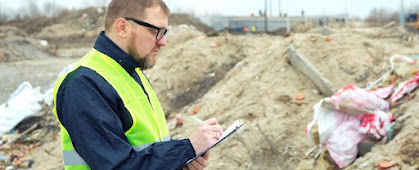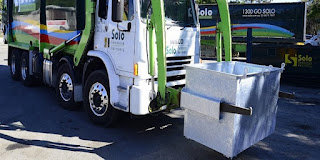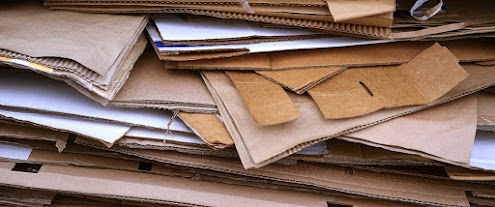Adelaide Waste Management Solutions to Control Pollution, Spread of Infection, and Conserving Natural Resources
Due to rapid urbanisation and the associated increase in a variety of waste types, such as rubbish, garbage, construction and demolition waste, green waste, tyres, electronic waste, and so on, waste management has become increasingly important in recent times. Simply dumping this waste in a landfill is not the best solution. To reduce the impact of waste on the environment and humans, businesses and residents in Adelaide require innovative Adelaide rubbish removal and Adelaide waste management solutions.
Adelaide waste
management is becoming increasingly important in order to control pollution,
the spread of infectious diseases, conserve environmental resources such as
forests, and recycle. Adelaide Waste and Recycling Centre, a leading Adelaide
waste management company, provides cost-effective Adelaide rubbish removal
and recycling solutions that comply with all local and state regulations.
Adelaide Waste and Recycling Centre offers a variety of Adelaide waste management services, including green waste, tyre disposal, cardboard recycling, industrial bin services, and Adelaide rubbish tip. The company operates a state-of-the-art Adelaide rubbish removal and Adelaide waste management facility at its North Plympton recycling facility that accepts a variety of waste types including general waste, construction and demolition waste, green waste, paper, and cardboard recycling. The reputable Adelaide waste management company uses advanced recycling techniques to recycle the waste collected at its Adelaide rubbish tip, with the goal of reducing your carbon footprint on the environment, while strengthening the circular economy.
Composting of green and organic waste
Organic waste,
such as food and garden waste, can be easily composted, and this is also the
traditional way of disposing of green waste. Composting is a biological process
in which microorganisms such as fungi and bacteria convert biodegradable green
waste into humus-like material. The composting process recycles nutrients and
returns them to the soil in the form of nutrients. Adelaide Waste and Recycling
Centre provides residents and businesses in the area a low-cost and safe
composting service, which significantly reduces the amount of disposable
garbage.
Key benefits of composting:
·
It reduces the adverse effects
of excessive acidity and the use of chemical fertilizers in the soil.
·
Composting helps in preventing
soil erosion by keeping the soil covered.
·
Composting makes soil easier to
cultivate.
·
Growth of weeds in the garden
is put under control.
·
Vermi-composting is used by the
Adelaide waste management facility in which worms are added to the compost that
break the waste and make the compost rich in nutrients.
Trained staff to deal with recyclable and
non-recyclable waste
The Adelaide
rubbish removal tip employs trained personnel who sort recyclable and non-recyclable
material that arrives at its recycling facility. Garbage is mostly decomposable
food waste, whereas rubbish is mostly dry material that is not decomposable,
such as paper, cloth, wood, and glass.
All recyclable
waste is recycled, including paper, cardboard, green and organic waste,
plastic, glass, scrap metals, and construction and demolition waste, while
non-recyclable waste is disposed of in an engineered landfill. The landfill is
engineered and designed to ensure that any waste disposed of there does not
contaminate the soil or underground water, nor does it serve as a mosquito
breeding ground.
Some types of
solid and liquid waste are classified as hazardous because they are hazardous
to the environment, human health, and the local ecology. Toxic, ignitable,
corrosive, and infectious waste are examples of hazardous waste. Toxic waste is
primarily made up of chemical waste from industrial processes that, if
consumed, can cause injury or death. Infectious waste is typically medical
waste, such as swabs, bandages, and gloves, which may contain infectious
pathogens. Hazardous waste requires specialised handling and a trained crew for
safe treatment and disposal, which can only be provided by licensed recycling
facilities.
Recycling of e-waste and whitegoods
Electronic
waste, also known as e-waste, refers to electronic equipment that has reached
the end of its useful life or has become unusable due to redundancy, breakage,
or replacement. Whitegoods such as televisions, computers, and mobile phones are
examples of e-waste. E-waste may contain a complex mixture of highly toxic
substances, such as lead and cadmium, that can endanger residents and should be
disposed of as hazardous waste. The Adelaide Waste and Recycling Centre's
Adelaide waste management facility will recover valuable raw materials from
whitegoods, such as silver, gold, copper, and so on, that can be used in the
manufacture of electronic items.
The company's
Adelaide waste management facility in North Plympton is a member of the
National Television and Computer Recycling Scheme, which allows all Adelaide
households and small businesses to recycle their computers and televisions for
free. Both commercial and residential waste generators can use Adelaide's
rubbish removal and recycling facility.
Providing high standards in waste management and
recycling
Adelaide Waste
and Recycling Centre is dedicated to providing environmentally friendly and
innovative Adelaide waste management and recycling solutions that meet high
environmental, carbon, and energy management standards in all of its Adelaide
rubbish removal activities. The reputable Adelaide waste management and
technology company offers complete solutions for compliant Adelaide rubbish
removal, storage, recycling, and disposal.







Comments
Post a Comment